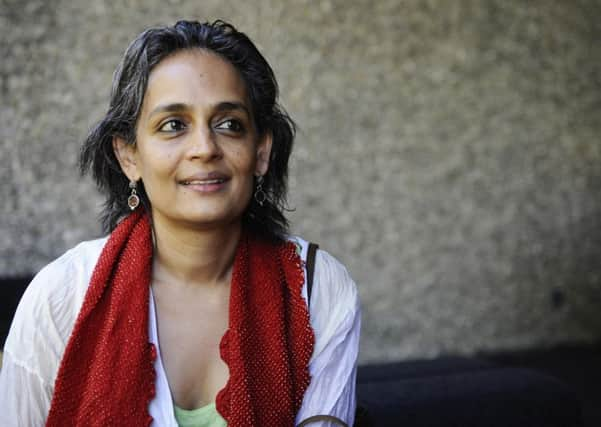Book review: The Ministry of Utmost Happiness, by Arundhati Roy


It is 20 years since Arundhati Roy published her only previous novel, The God of Small Things, which unexpectedly, and to my mind undeservedly, won the Booker Prize. She says she started this new one ten years ago, and it shows in the novel’s lack of structure and rag bag nature. You have the impression of a book that has been tinkered with and fattened, one in which the original concept, whatever that may have been, was buried long ago. It is not without charm. There are some lively scenes, though they are not dramatic because of the author’s tirelessly explaining voice, and there are fine polemical patches, which is not surprising because over the years Roy has become better known as a protestor and political activist for many causes, mostly admirable ones, than as an author of imaginative fiction. So we get much about the environment, the problem of Kashmir which has bedevilled Indian-Pakistani relations since Independence 70 years ago, the rise of intolerant and brutal Hindu nationalism, domestic violence and feminism, the situation of Muslims in the Indian Republic, terrorism and the cruel treatment of chickens.
It’s very colourful of course, India presented in all its rich and colourful variety served up in a spicy sauce, Rushdie-style, for the Western market. The main character in the first half of the book is Anjum, a glamourous Hijra – a transgender woman – originally believed to be a much-desired boy. When she chooses the female role she moves into a Hijra commune, well-described, even if only an unusually alert and conscientious reader will remember who is who. Then in middle-age, having experienced the horror of communal violence in Gujerat and the murder of many of her fellow-Muslims, she withdraws from the commune and goes to live in a cemetery, well peopled with the dead when she settles there and soon with many of the living, derelicts and eccentrics whom she attracts there; also of course with birds and animals, some of which are ritually slaughtered, others not. The graveyard is, I suppose, a metaphor for India, though not perhaps a convincing one for Indians. There is however a good deal of charm in Roy’s depiction of life there. For all her fierce polemics, cosiness keeps breaking in.
Advertisement
Hide AdIn the second half of this rambling novel, Anjum rather gives way to a beautiful activist and poet, Tilotamma (Tilo), who reminds her husband of Billie Holliday – “not so much the woman as the voice”. Tilo worries about where science is leading. “These days,” she writes, “one is never really sure if an ear of corn is a leg of pork or a beefsteak”. Tilo is rather a bore, though a beautiful one.
Roy is a tireless explainer, and like many tireless explainers, tiresome. It’s a pity because there are fine passages in this swirling novel, even some humour. But so much is over-written and over-coloured that only a few characters achieve a convincing life – Anjum’s parents for example, the mother caring tenderly for the son she believed she had borne, the father withdrawing and seeking consolation in poetry. There are moments of tenderness and moments of horror, and there is some lively observation. What there isn’t is any compelling story or narrative line. Roy gives us an India full of wonders and eccentricity dressed up in vivid colours for the export market. What she doesn’t realise is that more in fiction is often less and vice-versa. Bits of it are certainly enjoyable, in a lazy sort of way, and the polemical passages are mostly competent journalism, unquestionably sincerely felt. Muriel Spark’s dismissal of some novel comes to mind: “For those who like this sort of thing, this is the sort of thing they will like”. My response , sadly, is Sam Goldwyn’s: “Include me out”. My proof copy came without a much-needed glossary of the Urdu or Hindustani found on almost every page; I hope there is one in the finished version. No matter; I expect the book will win prizes.
The Ministry of Utmost Happiness is published by Hamish Hamilton, £18.99